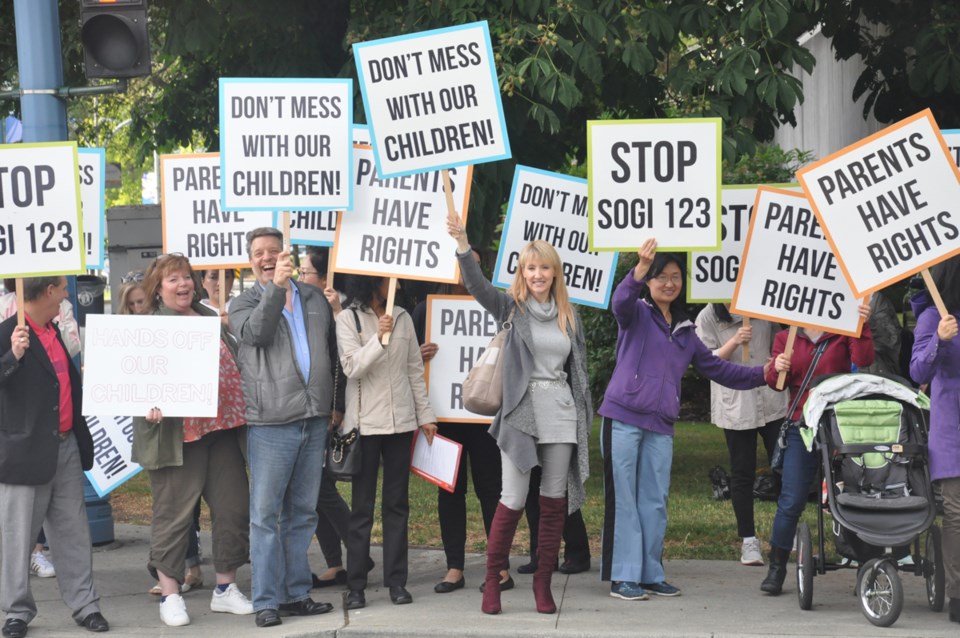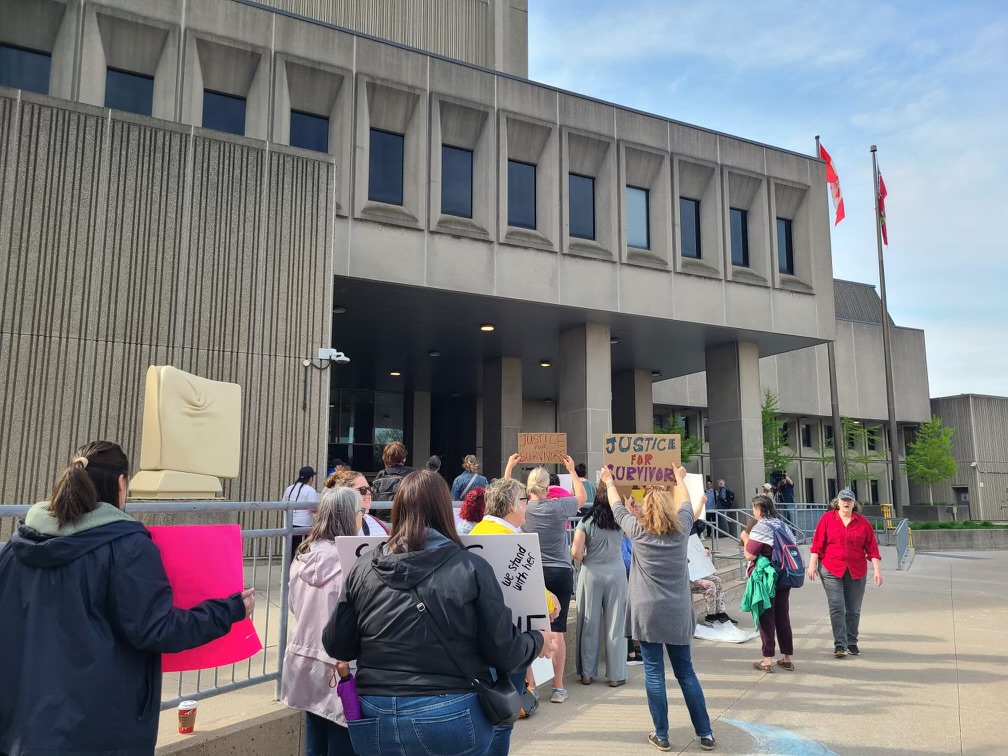CUPW Local 566 holding down the line in Canada Post strike
Emmanuel Akanbi
Fri November 29, 2024

For over a week, hundreds of London’s postal workers have been on strike as their national union fights for a fair deal that protects workers’ benefits and pensions.
Workers of the Canadian Union of Postal Workers (CUPW) went on strike across the country on Nov. 15. In September and October, workers representing Canada Post’s two largest bargaining units — the Urban Operations unit and the Rural and Suburban Mail Carriers unit — voted over 95 per cent in favour of a strike mandate. With negotiations stalled, more than 55,000 workers have taken to picket lines, leaving millions of Canadians impacted.
In London, approximately 900 Canada Post workers are represented by CUPW local 566. On Nov. 21st, dozens of London’s postal workers gathered at CUPW local 566’s 24/7 picket line in front of the Canada Post Administration Building on Highbury Avenue.
CUPW Local 566 president Kim Rouble said Canada Post has been trying to reduce workers’ benefits and pensions during the current round of bargaining, with changes to the pension plan for new workers being among the most controversial.
“It won’t be sustainable in the long run,” said Rouble. “It’s been on the table for a long time — I didn’t think it was going to be on the table this time, because we were in such a solid position.”
Canada Post has been attacking the worker pension plan for over a decade now, which has led to many labour actions in recent years.
Through this round of bargaining, Canada Post has been trying to chip away at the worker pension plan again, this time by trying to introduce a “defined contribution plan” for new workers’ pension plan. Under this style of pension there is no guarantee of a secure pension income amount for retirement; instead, workers’ retirement income depends on the state of their own contributions, investments, interest rates, and the stock markets.
Along with the alternative pension plan, Canada Post is seeking to place newer employees on “flexible” benefits plans, individual insurance plans which the union claims puts the highest costs onto those most in need of care.
Despite the biting cold, the striking workers have seen solidarity from community members and other local unions. On Friday, local Public Service Alliance of Canada union leaders and New Democratic Party Member of Parliament Lindsay Mathyssen came to the picket line.
“It was heartwarming and encouraging, amazing – this is the first time I’ve seen this much support from Londoners,” said Rouble, recounting her own support of local strikes in the past year. “I was on the [picket line] – giving support to the LCBO. I was on support with the [Western University] custodial workers, who I thought were treated horrendously. I mean, I think Canada Post took a page from their book. They usually get low, but they were really bad.“
Along with protecting their benefits and pensions, CUPW is also calling for safer working conditions, as Canada Post had the highest disabling injury rate and the third highest fatal injury rate in the federal sector in 2021.
“Just prior to the strike, we had supervisors that were disciplining workers [who] were being injured – a claim suppression,” explained Rouble. “Everything is not on the backs of the workers, it cannot be on the backs of the workers. We have a right to health and safety.”
Rouble recounted Canada Post supervisors attempting to suppress injury claims by incentivizing workers to not report injuries. The supervising staff would organize pizza days or bring in free coffee to ‘celebrate’ workers not having a reported injury in a quarter or other duration of time.
“This is [framed as] encouragement, but it’s really ultimately claim-suppression and pitting worker against worker.”
This strike comes at a hard time for consumers, with winter holidays coming soon, but Rouble believes the public should understand where the union is coming from as they’ve been without a contract for a year. She explained that the union took a contract extension during the COVID-19 pandemic to wait for the economy to stabilize and not leave Canadians without mail during lockdown.
“We already met them over halfway at the table and signed that contract extension with very little improvements – it was just very much a status quo, but we felt the greater need of the corporation and of people were more important at that time.”
Despite the support CUPW workers have seen, union members have found there are still some misconceptions among the public regarding the purposes of the strike.
“I find a lot of the public that doesn’t support us, they think we’re paid by taxpayers, which is incorrect information,” said Pam Patterson, a union member of over 19 years. The operations of Canada Post are funded by revenue from product sales and services, not taxpayer dollars.
“Some of the public thinks we’re out here and we just want more money, but a lot of us, we just want to keep what we already have,” said Patterson.
Sharon Samuels, CUPW local 566 first vice-president, echoed this point.
“People think we make a lot of money, but the starting wage here is $22 an hour. That’s not enough to have a car, a home. [People will say] like ‘oh they’re unskilled workers.’ So because you believe you have a skill, you’re the only one that should have a house?”
Despite Canada Post blaming its proposed benefits and pension cuts in the bargaining contract on record losses — a before-tax amount of $315 million — executive bonuses have only continued to increase.
Samuels added she wished the public was aware of how much Canada Post’s executives make — previous president Deepak Chopra made roughly $500,000 annually in the last 5 years of his contract, with the other 20 senior management executives and vice-presidents making similar six-figure salaries.
Though the company blames workers benefits and pensions for its desperate financial situation, several workers who spoke to Antler River Media on the picket line pointed to the new Albert Jackson Processing Centre, which cost $470 million to build.
“They spent all that money on that Albert Jackson plant — it’s not even up and running at full capacity,” said Patterson.
Samuels added the company purchased many electric vehicles for the plant as well, but is unable to use them since they haven’t built charging stations.
Samuels claims that Canada Post is proposing cutting down on many benefits, including maternity leave.
“[Imagine] you were going to have a baby and you thought you were getting 90 per cent of your pay, and now you’re getting 55 per cent from unemployment.”
In 1981, CUPW went on a 42-day national strike that won Canadian postal workers 17-weeks of paid maternity leave. Their victory is celebrated as what brought maternity leave benefits to union bargaining tables across the nation.
Despite the strike, the union still delivers pension and social assistance cheques to Canadians as part of a Memorandum of Agreement signed with the employer, ensuring those in need are still able to receive necessary financial support.
“Our fight isn’t with the public, it’s with the corporation,” said Samuels.
As the strike reaches its two week mark, Canada Post has been temporarily laying off striking employees. Patterson hopes that a collective agreement will come soon.
“They say there’s 55,000 workers here, well, that’s 55,000 families.”







